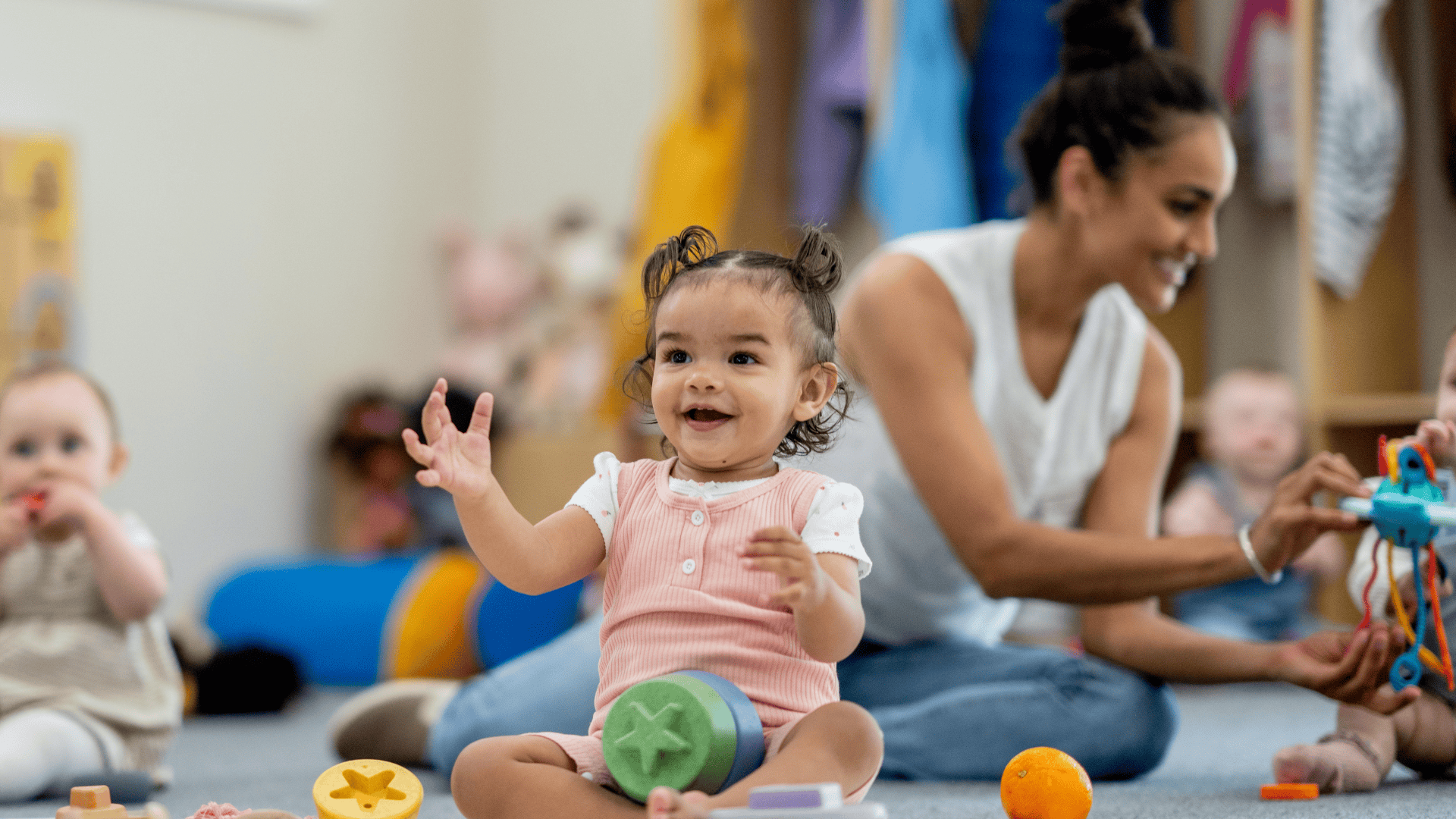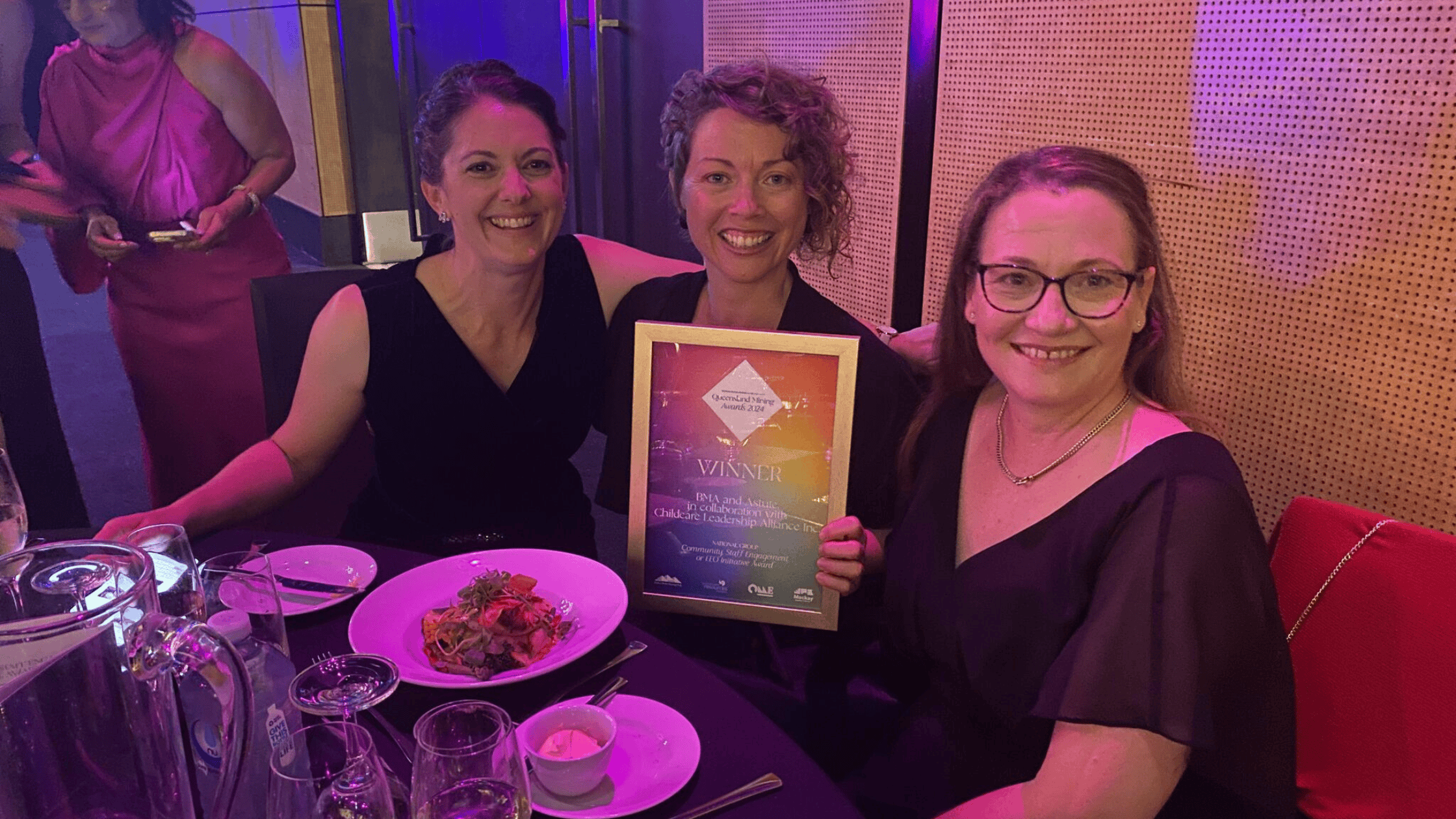Culture of care in early childhood is about perspective and encompasses many things, from centre leaders caring about their teams, and their teams caring for each other and their purpose, to considering how we can embed that culture of care in our practices with children.
Having a culture of caring when we consider the children we spend time with is so important. It matters because culture matters. The way we engage with each other impacts our lives, especially the children we share our spaces with.
As adults who work with children, it’s important to acknowledge power imbalances that come naturally in adult/child dynamics, we are the adult and the children in our care are our responsibility, and as Spider-man tells us, with great power comes great responsibility – responsibility that we need to use with respect, care, and understanding.
The energy and our state of mind easily impacts children. From birth, children are capable of feeling and knowing how others feel without adults verbalising it. Think of a time when as a parent or educator you were not your best. It happens, we are human after all! You may have been tired, frustrated, unwell, angry even – how did the children around you respond? It is guaranteed that they knew something was up and acted accordingly; they could have been showing us big behaviours, or they may have been scared, trepidations, anxious even. The same goes for when we are feeling at our best – when we are happy, feeling silly, in a great mood- so goes the household! We need to respect that as the parent, the educator, the leader of the space – we set the mood.
Happy, safe, engaged, caring cultures produce happy, safe, engaged, caring children. Children who spend time with adults who have intention, purpose and authentically care about children are empowered and feel important and considered.
A culture of caring about children, intrinsically and authentically, means the relationships and connections between children and adults is a space where we truly respect children’s agency, identity and sense of worth. From a young age a child will have their own answers to questions like “Why do you do that the way that you do?” or “What do you think?” – but it’s up to us to ask those questions and consider children’s answers as powerful statements of self.
So, what are some of the ways we can build a culture of care within the connections we have with children?
- Intention and purpose – identifying why it matters
Building a culture of caring starts with purposeful connection – connecting what you believe with what you do, and how you do it. All early childhood services across Australia will have a whole lot of words on a page that make up their purpose and this will be documented in their Service Philosophy or values. And most individuals will have their own internal pedagogy or belief systems in place that establish their own reasons for wanting to have a culture of care, or why caring is important to them.
This is about teams, or people, identifying not just the purpose or the words in the philosophy or values, but caring about why those words matter to you and the children you connect with.
- Engagement – empower each other
With your intention clarified, you now have identified your purpose and you now need to engage your community with what you believe. You can’t force others to care about your purpose, but part of creating a culture of caring includes empowering the people within it. This means the adults and the children. It means providing them with the tools they need to succeed. It means providing supportive and caring environments where the children and the adults feel empowered to contribute. We can set actions, develop shared practices, involve the children and their families in everything that we do to reach our shared purpose of a culture of care. Even the smallest of steps here – all of this can have a big impact and can start with the youngest of children.
- It’s ok to go rogue
Just because we have developed tools to empower ourselves and each other, including shared understandings, or intentions, or procedures, doesn’t mean there is no place for flexibility. Caring is about understanding that people are human. It’s about respecting the individual and meeting people where they are at.
Caring means different things for different people and understanding that is what makes a culture of care authentic. Philosophies, procedures, and practices aim for consistency of practices but there is no textbook for “how to care” – we need to have movement and flexibility for people to respond and act according to the moment and the context.
- Relationships are key
Developing deep relationships and connections with children is key to everything we do, especially when considering a culture of care. When adults practice care, children notice. Care and respect go hand in hand in an early childhood setting. When we respond and engage with children on a deeper level, children feel safe and supported in their spaces. There are many ways we can really focus on the intention of care and connection. One of the ways is to make consistency and stability central.
For example, are there ways you can build consistency and stability into rosters? One of the easiest ways we can show children that we truly care for them is, where possible, having the same educators learning and growing with them wherever possible. The benefits of this for children are immediate because we know that providing children with consistent, stable, and supportive relationships, especially during transitions, is critical. What better way to show care for the child as an individual than by having a caring, familiar educator ready to support that potentially stressful experience of saying goodbye to family in the morning? We should all be striving to implement a process that is consistent and predictable for each child and their family. A process that will provide security and safety and connection. A process that shows we care about you and we respect our relationships with you.
- Share achievements
Share your stories of success with the world! When you share your achievements and what is working again and again, you are developing your culture. It might be by passing on stories of success with families. It might be posting on social media or StoryPark. It might be facilitating discussions in staff meetings. And it might be giving shout-outs to educators, children, and family members who are walking the talk and really living your philosophy and values.
Your vibe attracts your tribe – engage the people in your space or your service by empowering them to take ownership of your shared culture and consider how they can implement it across the service, and wider, community. Building your culture is like capturing essence. Be generous with your connections with each other and understand that your shared ideas are what make you unique.
To understand more about the importance of Early Childhood Education and Care visit our blog.









